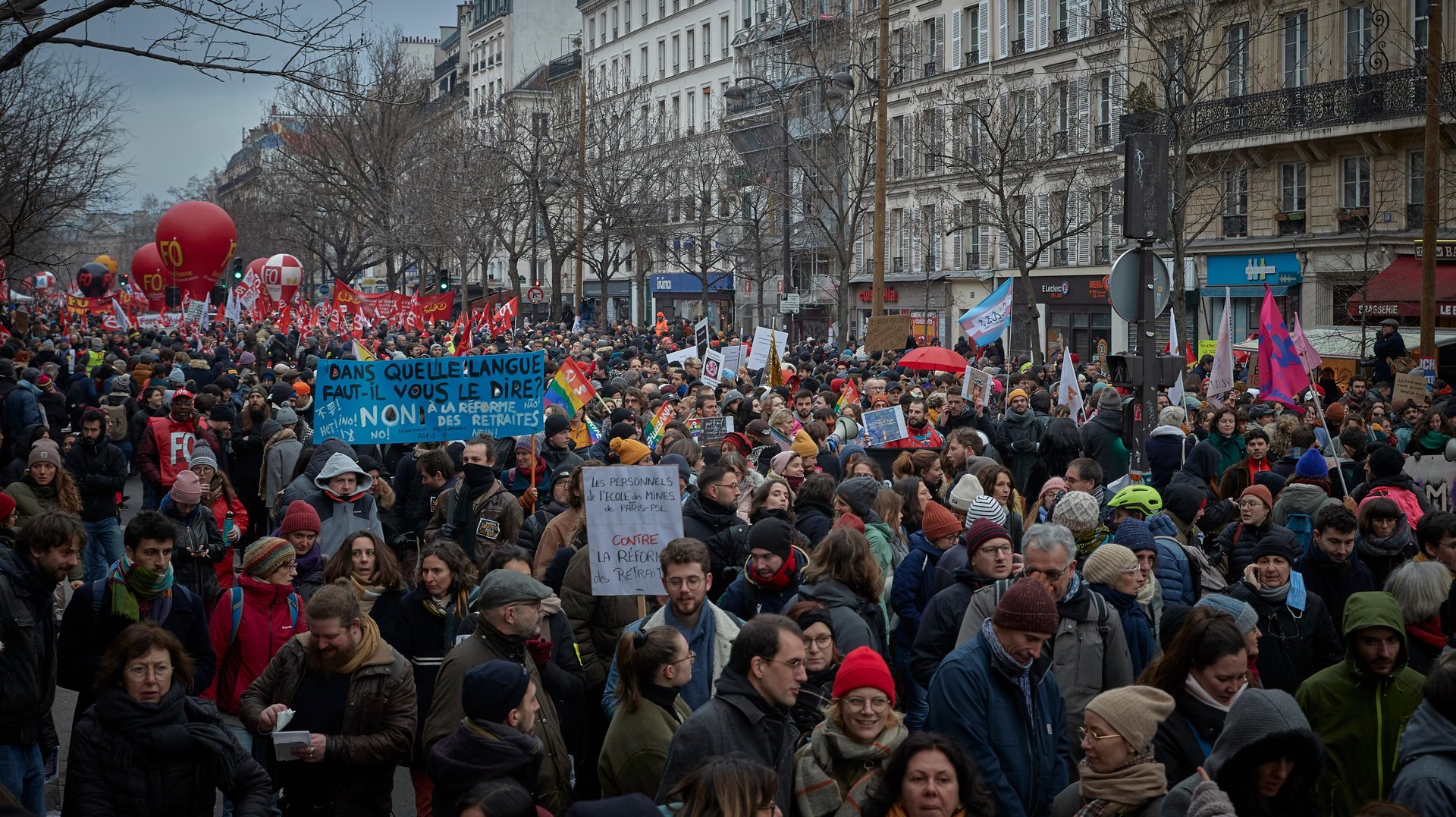Workers in France are organizing a new wave of strikes against the pension reform
The CGT’s energy arm, like other protesting workers, is opposing Macron’s retirement age hike and pension reform

Workers in France are up in arms against president Emmanuel Macron’s proposed changes of the retirement age, with a series of targeted strikes designed to keep the pressure on in between larger demonstrations.
The energy arm of France’s 690,000-strong union General Confederation of Labour (Confédération générale du travail, or CGT) has called for a 48-hour strike starting Jan. 26 as well as a 72-hour action from Feb. 6, according to Bloomberg.
These two are in addition to the second round of nationwide protests scheduled for Jan. 31, after a massive turnout during the first round of demonstrations on Jan. 19. Workers from various sectors are protesting an increase in the retirement age for most workers from 62 to 64 by 2030 to combat a pension fund deficit.
Macron, who first tried to push the reform in 2019 but shelved plans amid the covid-19 outbreak, has called the raise “just and responsible,” but most French citizens beg to differ. In 2019, too, similar protests swept the country.
In addition to the strikes, the CGT energy branch is discussing other actions, such as supplying free energy, targeted power cuts, or measures that could hamper operations at LNG terminals and gas storage facilities, Bloomberg reported.
Whether France will use requisitions to bring back striking workers, like it did with oil workers angling for higher pay last year, remains to be seen.
French pension reform protests, by the digits
1 million: People who protested Macron’s plan to hike the retirement age on Jan. 19
3: TotalEnergies SE oil refineries that had deliveries disrupted by oil workers’ strikes on Jan. 19
7 gigawatts: Capacity affected by strikes on Jan. 19
4 out of 5: French citizens who opposed the higher retirement age in an Odoxa poll
Quotable: Putting pressure on the French government
“We decided to call a strike during the February holidays because the claims will be better heard during this period,” —Eric Becker, general secretary of the ski lifts in Force Ouvrière, said about unions representing ski-lift workers calling for an unlimited strike action on Jan. 31, just before half-term break for many schools in the country.
One more reason to protest: Energy prices
French bakers, who claim their monthly electricity bills have multiplied tenfold because they’re among the small businesses not protected by government-imposed tariff caps on energy prices, took to the streets to protest the high power prices on Monday (Jan. 23). These bakers were already struggling: Food inflation has pushed up the prices of butter and flour, and the price of eggs recently spiked in the wake of the bird flu outbreak that hit several French farms.
The government has offered some half-baked (pun intended) measures, but it won’t help all 35,000 bakeries in the country. The suggested respites were either too complicated, too slow to deliver help, or available for only bakeries with less than 12 employees, for instance.
The CGT energy union of Marseille has reportedly been providing distressed bakers 50-60% cheaper electricity as a temporary relief.
